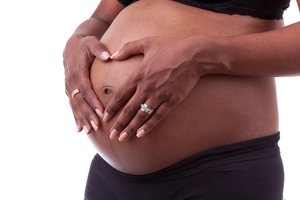Health chiefs encourage more pregnant women to get their COVID-19 vaccine
Health chiefs are encouraging more pregnant women to get their COVID-19 vaccine, as new data shows that 51,724 pregnant women in England have received at least one dose.

The data, from Public Health England (PHE), shows these were all women aged under 50 years of age, who reported that they were pregnant or could be pregnant at the time of receiving the vaccine. Of these, 20,648 women have received their second dose.
On 16 April 2021, the Joint Committee on Vaccination and Immunisation (JCVI) advised that pregnant women should be offered the coronavirus (COVID-19) vaccine at the same time as the rest of the population, based on their age and clinical risk group.
Some pregnant women will have been vaccinated before this date if they are clinically vulnerable or are a healthcare worker, therefore these figures are likely to be much higher.
It is preferable for pregnant women in the UK to be offered the Pfizer-BioNTech or Moderna vaccines where available, as there is more safety data available on these vaccines in pregnancy.
Vaccines Minister Nadhim Zahawi said:
It is brilliant to see so many pregnant women coming forward for their COVID-19 vaccines, ensuring they protect themselves and their baby from this awful virus.
While uncommon, severe illness from COVID-19 is more likely in later pregnancy and infection increases the risk of a premature birth. The COVID-19 vaccines are one of the best defences against infection, preventing at least 11.7 million infections in England alone. I urge everyone – including pregnant women – to get their vaccines as soon as they can.
Dr Mary Ramsay, Head of Immunisation at PHE, said:
It is encouraging that thousands of pregnant women have received a COVID-19 vaccine – we strongly urge anyone who has not yet taken up the offer to get both doses as soon as possible and for pregnant women to come forward for their second dose 8 weeks after their first dose.
The vaccines continue to save thousands of lives and we are confident that they can be safely offered to pregnant women, but if you have any questions or concerns please don’t hesitate to discuss these with a healthcare professional.
Dr Edward Morris, President of the Royal College of Obstetricians and Gynaecologists, said:
We are encouraged to see more than 50,000 pregnant women in England have received one dose of a COVID-19 vaccine. We recommend vaccination in pregnancy as it’s the most effective way of protecting women and their babies from severe illness and premature birth.
We are concerned that increasing rates of COVID-19 infection will adversely impact pregnant women. Of the pregnant women in hospital with COVID-19 last week, 95% were unvaccinated. We hope this reassuring data will help those undecided consider taking up the offer of a vaccine.
Gill Walton, Chief Executive of the Royal College of Midwives, said:
It’s really encouraging that so many pregnant women have already come forward to the vaccine – particularly bearing in mind this figure doesn’t include the pregnant health and care workers or those who are clinically extremely vulnerable who would have received at least their first vaccine before 16 April. We’re all very aware of just how widely the virus is still circulating.
That’s why it’s so important for pregnant women to take up the vaccine. We are seeing increasing numbers of pregnant women being admitted to hospital with serious illness, almost all of whom are unvaccinated. Pregnant women are at greater risk of serious illness if they get COVID-19, and those with severe COVID-19 are twice as likely to experience a stillbirth and 3 times as likely to have a preterm baby. Getting the vaccine is the best way to keep you and your baby safe.
So often, we mark out pregnancy landmarks in weeks, what size the baby is at 12 weeks or 22. Now we have a new landmark – 8 weeks between the first jab and the second. If you have any concerns or any questions, speak to your midwife who will help you make the right decision for you and your baby.
Though uncommon, severe illness due to COVID-19 is more likely in later pregnancy. Pregnant women who do get symptomatic COVID-19 infection are 2 to 3 times more likely to give birth to their baby prematurely.
The Pfizer-BioNTech and Moderna vaccines are recommended for pregnant women in the UK because these vaccines have been given to over 130,000 pregnant women in the US and the data has not raised any safety concerns.
Women who are planning pregnancy, who are in the immediate postpartum period, or who are breastfeeding can be vaccinated with any vaccine, depending on their age and clinical risk group.
The JCVI will continue to closely monitor the evidence on COVID-19 vaccination in pregnancy and will update its advice as required.
New data from PHE today also shows the vaccination programme has directly averted over 52,600 hospitalisations (approximately 8,800 admissions in those aged 65 to 74; 20,300 in those aged 75 to 84; and 23,500 in those aged 85 and over).
UK Health Security Agency press office
10 South Colonnade
London
E14 4PU